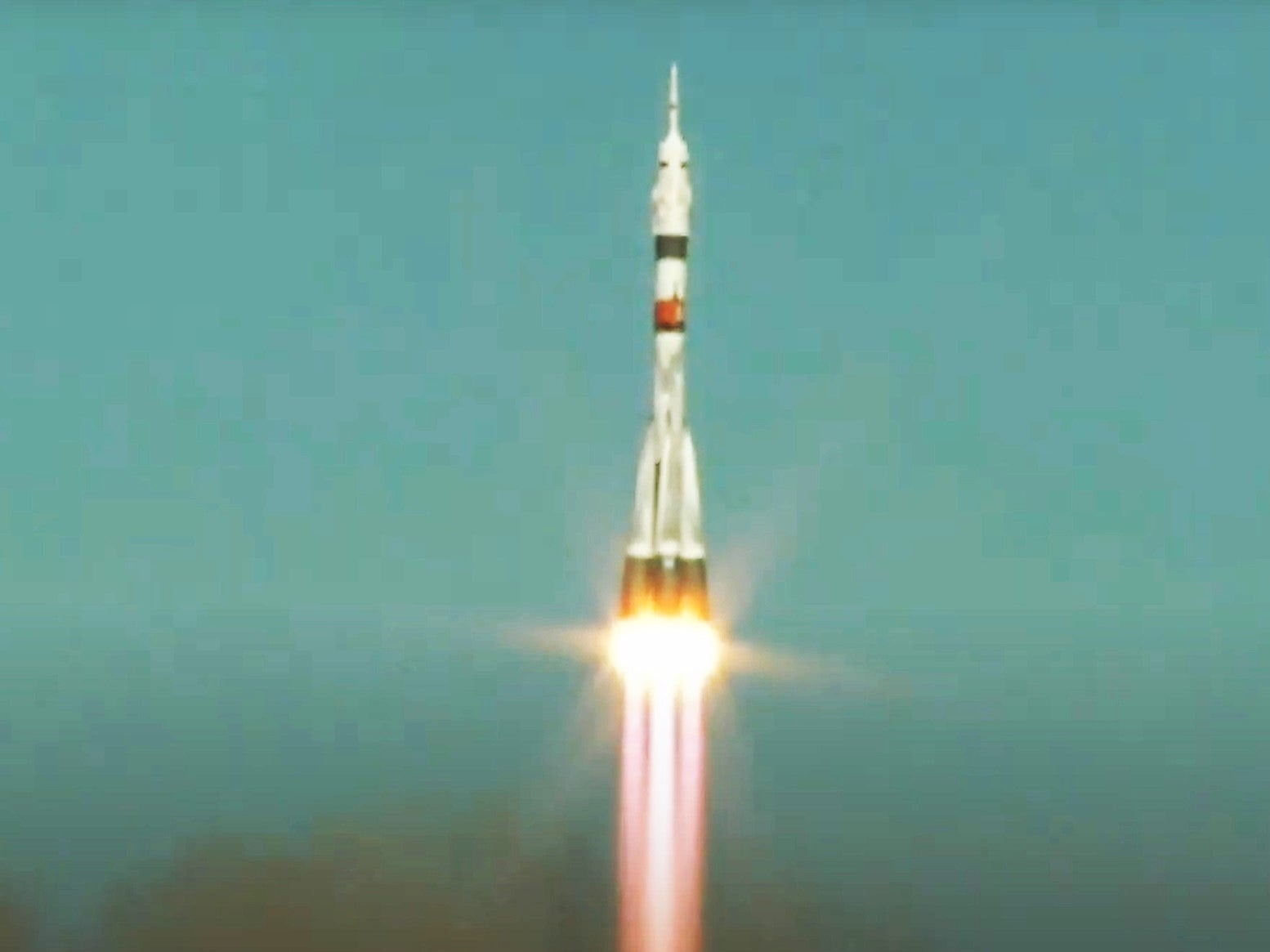Astronauts smash record to reach ISS in just three hours
Roscosmos says it is the ‘first time in history’ such a journey has taken place

A US astronaut and two Russian cosmonauts have reached the International Space Station (ISS) in record time.
Expedition 64 saw Kate Rubins, Sergey Ryzhikov and Sergey Kud-Sverchkov launch from the Baikonur Cosmodrome in Kazakhstan at 10.45am local time on Wednesday.
Three hours and three minutes later, their Soyuz MS-17 capsule docked with the ISS after just two orbits of the Earth.
Russian space agency Roscosmos said it was the “first time in history” that so few orbits were needed to reach the space station.
Before 2013, journeys to the ISS typically took around two days but improvements since then mean they now take around six hours.
Spacecraft need to match the velocity and altitude of the space station before they can use small boosters to safely navigate the final few metres and attach to it.
Unfavourable conditions meant that the last crewed launch to the ISS, Demo-2, took an entire day to dock with the ISS after launch.
The latest trip was not just quicker than any crewed mission before it, but also any cargo mission.
The Soyuz capsule will remain attached to the ISS until 21 October, when it will be used to return Nasa astronaut Chris Cassidy and Russian cosmonauts Anatoly Ivanishin and Ivan Vagner back to Earth.
Next month marks the 20th anniversary of a continuous human presence aboard the ISS, as well as the arrival of four new additions: Nasa astronauts Victor Glover, Michael Hopkins, Shannon Walker and Japan’s Soichi Noguchi.
The foursome will launch aboard the SpaceX Crew-1 from US soil, lifted into orbit by the reusable Falcon 9 rocket.
Join our commenting forum
Join thought-provoking conversations, follow other Independent readers and see their replies
Comments
Bookmark popover
Removed from bookmarks